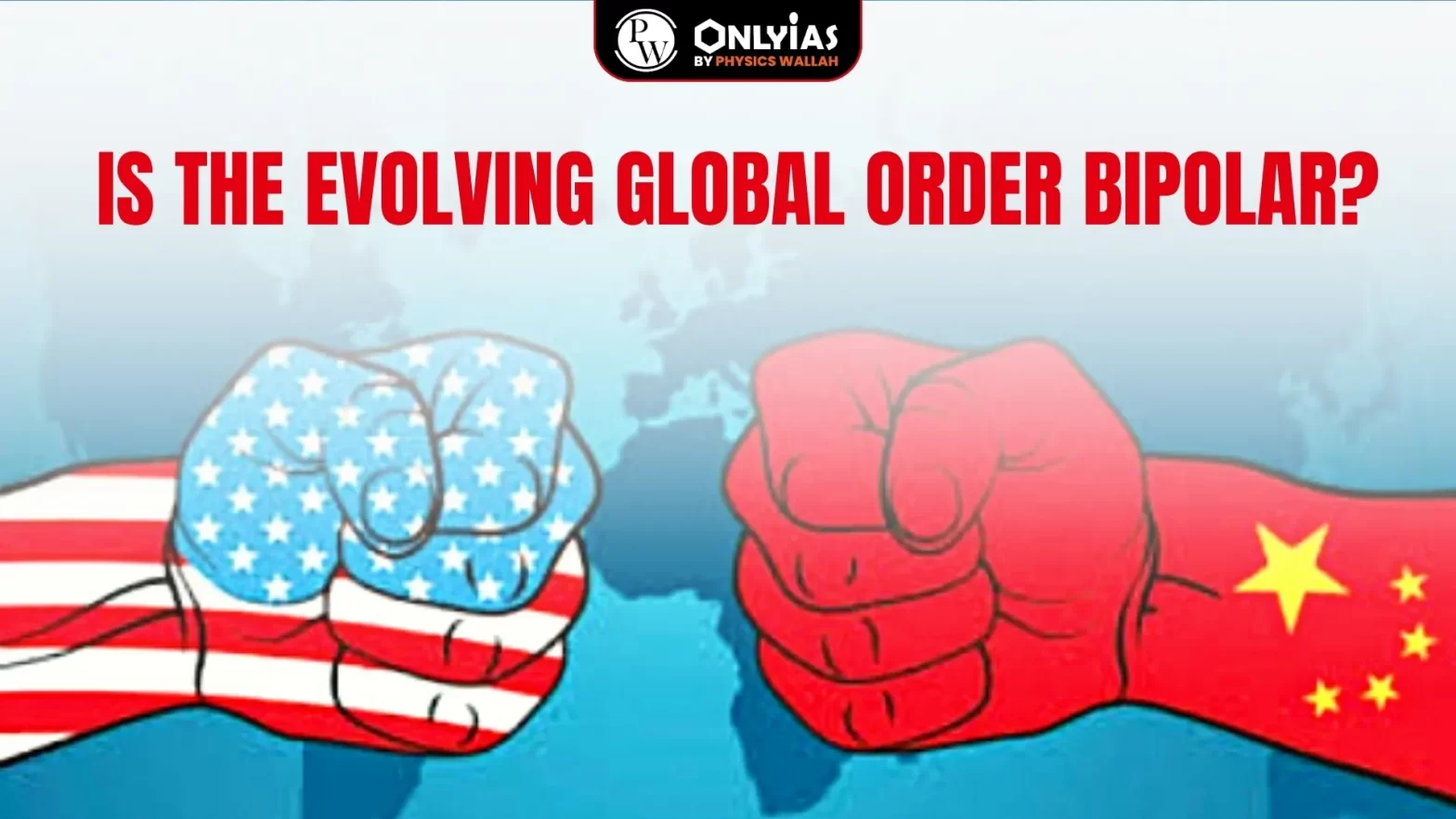Context: This article is based on an Editorial “Is the emerging global order bipolar?” Which was published in the Hindu. In recent years, the world has witnessed several disruptions such as China’s phenomenal rise, Russia’s moves, Israel’s engagement in a brutal war with Hamas and also the rise of several middle powers such as India. It is raising the question of the emerging global order.
|
Relevancy for Mains: Analysing the evolving global order, India’s strategic challenges, and the need for comprehensive national power in a changing geopolitical landscape.
|
About the Evolving Global Order:
- Asymmetric Bipolarity: The U.S. is still a pre-eminent power, but China is rising rapidly.
- China’s Rise: Its GDP in 1990 was $300 billion and is now $19.3 trillion, which is an unprecedented event or process to take place in human history.
- China is controlled by one party and virtually one man makes this economic lever particularly powerful in redefining the order.
- Game of Power:
- In the 19th century, small European countries became great powers. These are the countries that developed steam engines and developed naval fleets.
- In the 20th century, with nuclear evolution, superpowers became prominent.
- Era of People’s Power: 21st-century is witnessing connectivity, interactions, interdependence, and potential bipolar impulses.
- Game of Interest and Ties: Russia-China are seeming to have great ties, while in reality, Russia has an inclination towards diversification, especially with India, such as its policy, or pivot to Asia, relationship in terms of energy, especially East Asia and India.
- Further Strengthening of Russian-India Ties: There are two important corridors which will give some gravitas to the relationship.
- The International North-South Transport Trade Corridor.
- Chennai–Vladivostok Maritime Corridor.
What is the nature of India’s complex relations with the major world powers?
- Russia: As mentioned above, Russia is diversifying its dependency on China and finds India as a strategic and significant partner.
- US: India and the U.S. had signed a joint statement in July 2005, which opened up a new relationship, and a nuclear deal was finally signed in 2008 and India was supposed to get six nuclear power reactors from the U.S. These have not come yet.
- China: Despite several issues, there is high economic interdependence. China has a trade of $138 billion with India
The Path Ahead for India:
- Recognize the Strategic Challenges: China is going to be a long-term competitor in Asia. There is a huge power asymmetry between India and China.
- Need: To grow India’s comprehensive national power.
- With a growing Economy, India is going to be the third largest economy perhaps in a decade or more. With this economic rise, India has to spend more on military modernisation, with the added focus on disruptive technologies.
- Need to Balance: India needs both internal and external balancing.
- Internal Balancing: Need of societal cohesiveness to bring about peace and tranquility in the border States.
- External Balancing: Need to balance relations with the U.S. to perpetuate China’s two-front dilemma on the Western Pacific on one hand and the Line of Actual Control on the other.
- Global Collaboration to Control Military-Industrial Complex: Industries are producing destructive weapons all the time, and they’re spreading their instruments of death and destruction around the world. It needs to be addressed.
- India and the World need to take steps to control and restrict such Military-Industrial Complexes.
Conclusion
India faces intricate challenges in navigating its relations with major world powers amidst the evolving global order, requiring a strategic focus on comprehensive national power, internal and external balancing, and global collaboration to address shared concerns, such as the military-industrial complex.
![]() 1 Dec 2023
1 Dec 2023
